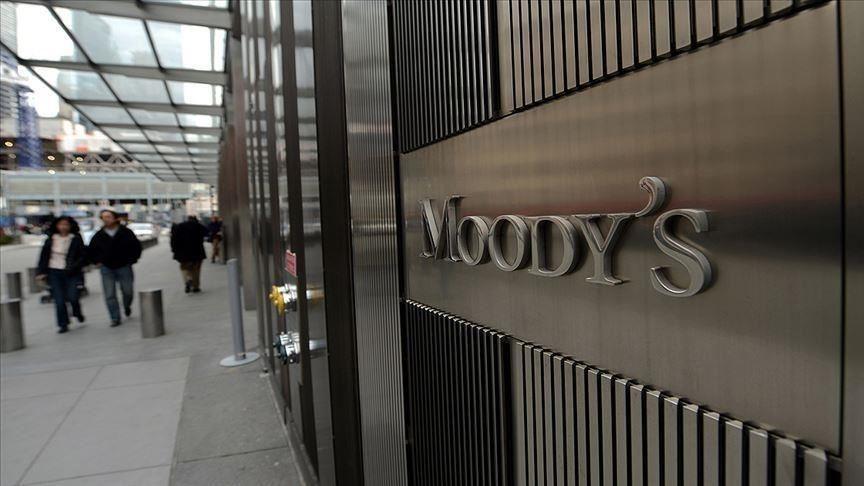ISTANBUL

Moody’s upgraded Türkiye’s credit rating from B1 to Ba3 on Friday, changing the outlook from positive to stable, citing improved policymaking and reduced risks of reversal.
“The upgrade reflects the strengthening track record of effective policymaking, more specifically in the central bank’s adherence to monetary policy that durably eases inflationary pressures, reduces economic imbalances, and gradually restores local depositor and foreign investor confidence in the Turkish lira,” the agency stated.
It added that while the risk of policy shifts lingers, it has diminished. Moody’s highlighted that sticking to current strategies and implementing structural reforms could enhance resilience against external shocks, especially by cutting energy imports and boosting export competitiveness.
The agency also lifted Türkiye’s local-currency ceiling to Baa3 and foreign-currency ceiling to Ba2, acknowledging better policy credibility but noting ongoing concerns over foreign exchange reserves and potential instability.
Treasury and Finance Minister Mehmet Şimşek commented on Moody’s credit rating upgrade for Türkiye via social media, describing it as validation of the country’s successful navigation through domestic and international challenges.
“Türkiye’s credit rating has been upgraded, signaling that our economy has entered a positive cycle after overcoming periods of uncertainty and hardship,” Şimşek stated.
“This increase confirms our effective management and the resilience of our economy. We are determined to permanently reduce inflation, maintain the current account deficit at sustainable levels and strengthen budget discipline, excluding earthquake expenditures.”
He added that the program’s achievements will be solidified through reforms focused on green and digital transformation, alongside structural changes in industry.
“With patience and determination in implementing our program, our risk premium will further decline, access to financing will improve and additional rating upgrades will follow.”
Fitch affirms Türkiye’s BB- rating with stable outlook
Fitch Ratings also on Friday affirmed Türkiye’s long-term foreign currency issuer default rating at “BB-” and maintained its outlook as “stable.”
In its assessment of the Turkish economy, Fitch said the rating reflects weaknesses and strengths in the country’s credit profile. It cited Türkiye’s “low government debt, record of sustaining access to external financing, resilient banking sector and high GDP per capita relative to the ‘BB’ peer group median” as key strengths.
The agency noted that its base case is for policies to remain “fairly tight through 2026,” while some easing is anticipated ahead of the 2028 elections. Fitch emphasized, however, that it does not expect “a return to highly negative real rates.”
Inflation, which dropped to 35 percent in June, is forecast to decline to 28 percent by the end of 2025 and to 21 percent by the end of 2026, although Fitch noted it is “still the highest of any sovereign we rate.”
Fitch projected that the Turkish economy will grow 2.9 percent in 2025, 3.5 percent in 2026 and 4.2 percent in 2027.
The agency said a “sustained decline in inflation that reduces the gap with rating peers underpinned by enhanced policy credibility, and a lower risk of renewed macro-instability” could lead to an upgrade. It added that a “significant strengthening of the sovereign’s external buffers” could also positively affect Türkiye’s rating.
Fitch upgraded Türkiye’s rating from “B+” to “BB-” in September and affirmed the rating and the outlook in a follow-up review in January.

